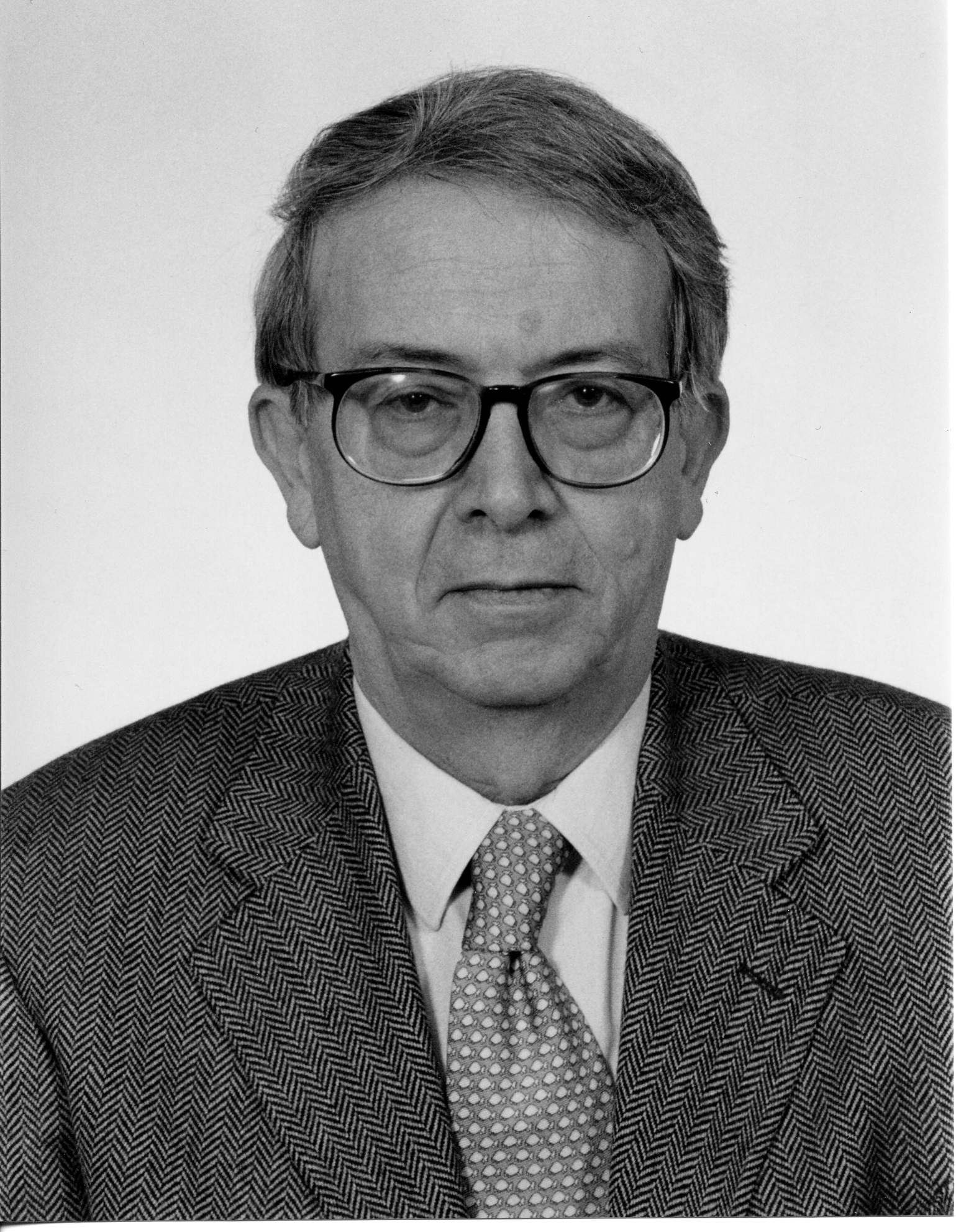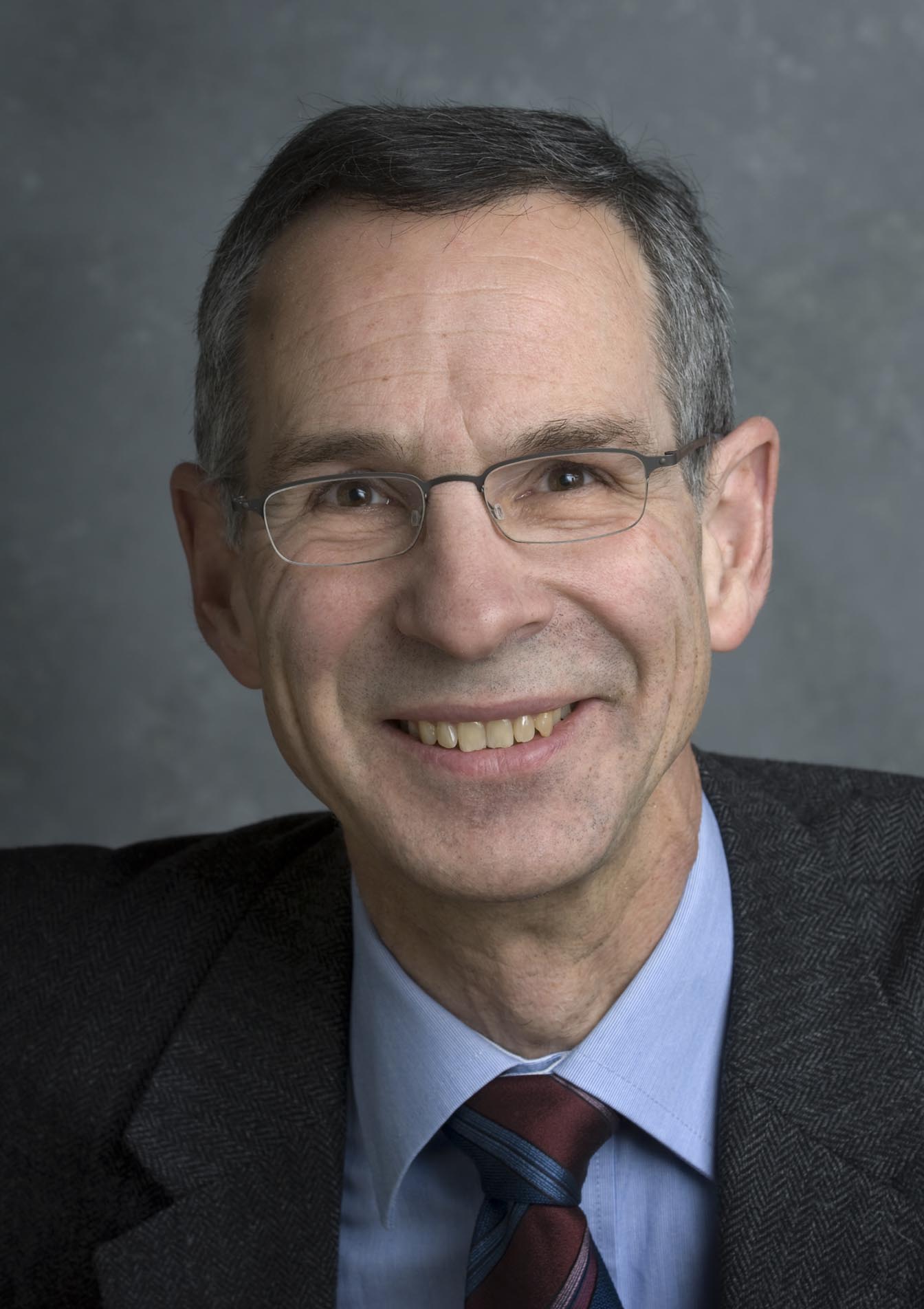Weissenberg Award
In commemoration of the scientific achievements of Karl Weissenberg, performed in several European countries, the European Society of Rheology (ESR) decided in 1997 to create a “Weissenberg Award” for outstanding, long-term achievements in the field of rheology.
The award was bestowed biannually until 2021, and is awarded annually thereafter.
Until 2021 the eligible were rheologists whose scientific activity was condicted mainly in Europe, from 2021 the eligible are rheologists regardless of their geographical position.
Weissenberg Awardees
Pier Luca Maffettone (2023)
Jeff Morris (2022)
Michel Cloitre (2021)
Jan Vermant (2019)
Philippe Coussot (2017)
Dimitris Vlassopoulos (2015)
Manfred H. Wagner (2011)
Michael Cates (2013)
Ole Hassager (2009)
Tom Mcleish (2007)
Roland Keunings (2005)
Ken Walters (2002)
Hans Martin Laun (2000)
Giuseppe Marrucci (1998)
Weissenberg Awardee 2023
The 2023 Weissenberg Award recipient is Pier Luca Maffettone.
Pier Luca Maffettone is Professor of Chemical Engineering at the University Federico II of Naples, Italy. He served from 2006 to 2011 as Coordinator of the PhD program in Chemical Engineering, from 2008 to 2012 as President of the Bachelor and of the Master of Science Courses in Chemical Engineering, from 2013 to 2018 as Chairman of the Department of Chemical, Materials, and Production Engineering, and since 2020 as Member of the University Board. He co-chaired AERC 2007 in Naples. He also served from 2014 to 2020 as a Member at large of the Executive Committee of the European Society of Rheology. His scientific activity is focused on modeling and simulation of the flow behavior of soft matter. He is currently member of the Editorial Board of Rheologica Acta and of Journal of Non-Newtonian Fluid Mechanics, and a Fellow of the Society of Rheology. He was visiting scientist at the University of Delaware (USA), at the Katholieke Universiteit Leuven (Belgium), at the Stanford University (USA), and at the Okinawa Institute of Science and Technology (Japan).
In the early stage of his scientific career, working in the group of G. Marrucci he analyzed the rheology of liquid crystalline polymers within the framework of the rigid rod model of Doi and Hess both in bulk and as monolayers in collaboration with the group of Gerry Fuller at Stanford. Later, he showed the occurrence of “Rheo-Chaos” in shear flows. He proposed, in collaboration with Mario Minale, a simple but effective toy model for the deformation of a drop in linear flows with Newtonian and/or viscoelastic liquids. The predictions of this model have been used as a rheological guide in several polymer blends and emulsion applications. The work on cross-flow migration of particles suspended in viscoelastic liquids started as a joint effort together with the group of Jan Vermant in Leuven and with Martien Hulsen in Eindhoven. The cross-streamline migration of a spherical particle in a viscoelastic fluid flowing in a wide slit microdevice was investigated through 3D finite element simulations. A multiplicity of stable positions was discovered, whereby the particle is driven towards the channel center-plane or the closest wall depending on its initial position through the gap, thus leading to the existence of an unstable separatrix. This phenomenon, a viscoelastic reversal of the well-known Segré-Silberberg effect driven by inertia, led to the development of Rheo-Engineered microfluidics for Lab-On-a-Chip applications. The cross-flow particle migration was also used to build a micro-rheometer to estimate relaxation times of viscoelastic fluids as low as milliseconds. He recently addressed, in collaboration with Gerry Fuller, the dynamics of film rupture with viscoelastic interfaces, revealing the existence of a novel breakage scenario.
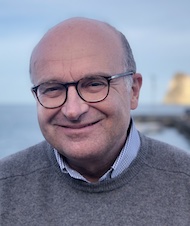
Award Citation: For contributing to a fundamental understanding of particle migration in viscoelastic fluids, also leading to the development of useful micro-rheological devices. For developing simple and successful models for the rheology of dilute blends of immiscible fluids.
Weissenberg Awardee 2022
The 2022 Weissenberg Award recipient is Jeff Morris from Levich Institute, New York, USA
Jeff Morris is Professor and Directorof at the Levich Institute of the City College of New York.
Jeffrey Morris’s comprehensive career-long research has laid the foundations for our current understanding of suspension rheology, starting with his PhD research with John Brady at Cal Tech and throughout his career at Georgia Tech, Halliburton, and the City College of New York, as well ashis consulting on topics including oil and gas flow, consumer products, and structural materials, where the control of suspension flow is critical. His research during the past decade has been transformative in establishing the current paradigm for describing the rheology of concentrated suspensions, work for which he has received the American Institute of Chemical Engineers Shell Thomas Baron Award in Fluid-Particle Systems and twice received the Journal of Rheology Publication Award. Morris’s goal has been to develop a comprehensive fluid mechanics of suspensions, as outlined in his 2020 American Physical Society Stanley Corrsin Award Lecture (Phys. Rev. Fluids, 2020), recognizing that the flow of suspensions is central to vast numbers of natural and industrial situations and that the complex rheology of suspensions can lead to secondary flows, to shear-induced migration, and to jamming.
In addition to his scientific accomplishments, Morris has excelled in service to the rheology community. For the Society of Rheology (US) he was an Annual Meeting Technical Program Chair and he has chaired the Nominating and Bingham Medal Committees. He was one of the organizers of an extended Kavli Institute Workshop on the Physics of Dense Suspensions, and he co-edited a special issue of the Journal of Rheology on the subject, as well as co-organizing a widely attended on-line symposium, with discussions published in JOR. He has also been very active in Europe, with continuing CNRS appointments from 1999 through 2010, and more recently as head of a FERMAT Foundation research program in Toulouse from 2016 to 2020. In addition to many well-written and highly cited reviews, he is the co-author with Élisabeth Guazzelli of A Physical Introduction to Suspension Dynamics, a text for those new to an area that requires the integration of concepts from fluid mechanics and statistical physics.

Award Citation: For ground-breaking work onthe particle pressure and the underlying mechanism of suspension flow and discontinuous shear thickening, for novel work on the rheology of hydrate-forming emulsions, and for outstanding service to the rheology and fluid mechanics community.
Weissenberg Awardee 2021
The 2021 Weissenberg Award recipient is Michel Cloitre from ESPCI, France.
Michel Cloitre is a Research Director at the Centre National de la Recherche Scientifique in France. After earning an engineer diploma in physics and chemistry from ESPCI, he received a Masters in Statistical Physics and a PhD from Pierre and Marie Curie University in Paris (1989). He then joined Orsay University to establish a group working on the fluid dynamics of complex fluids (1991). After a few years, he moved to a joint research unit between CNRS and the chemical company ATOCHEM, now Arkema (1996‐2003). This was a challenging and very influential experience in his career. Afterwards he joined the Soft Matter and Chemistry laboratory at ESPCI. In 2019, he became the Director of the Molecular, Macromolecular Chemistry and Materials laboratory where he pursues his research.
Michel’s research focuses on the relation between the dynamic microstructure and rheological properties of soft matter systems. He is particularly known for the advances he made on understanding the effect of flow on the structure and macroscopic behavior of colloidal glasses, pastes and emulsions, physical gels, binary associative polymers, and various polymers with complex architectures. Important applications studied in collaboration with industrial partners include liquid‐liquid encapsulation, enhanced oil recovery and the development of hydrocolloids for water‐borne formulations. He teaches undergraduate and graduate courses on soft matter, molecular rheology, and material design. Michel was a coauthor of papers that have won the 2005 and 2014 SOR Publication Awards and the 2019 Rheologica Acta Publication Award. He also received the Maurice Couette Prize from the French Society of Rheology in 2010.
Michel is an active member in the rheology community. In 2015, he chaired the 10th Annual European Rheology Conference held in Nantes. As a member of the European Society of Rheology since 2013, he has served as the Secretary of the Society (2016‐2019). Michel has also been a member of the Society of Rheology since 2005, attending all annual meetings, and contributing as a Member at Large (2017‐2019). He is a member of the Editorial Board of the Journal of Rheology.
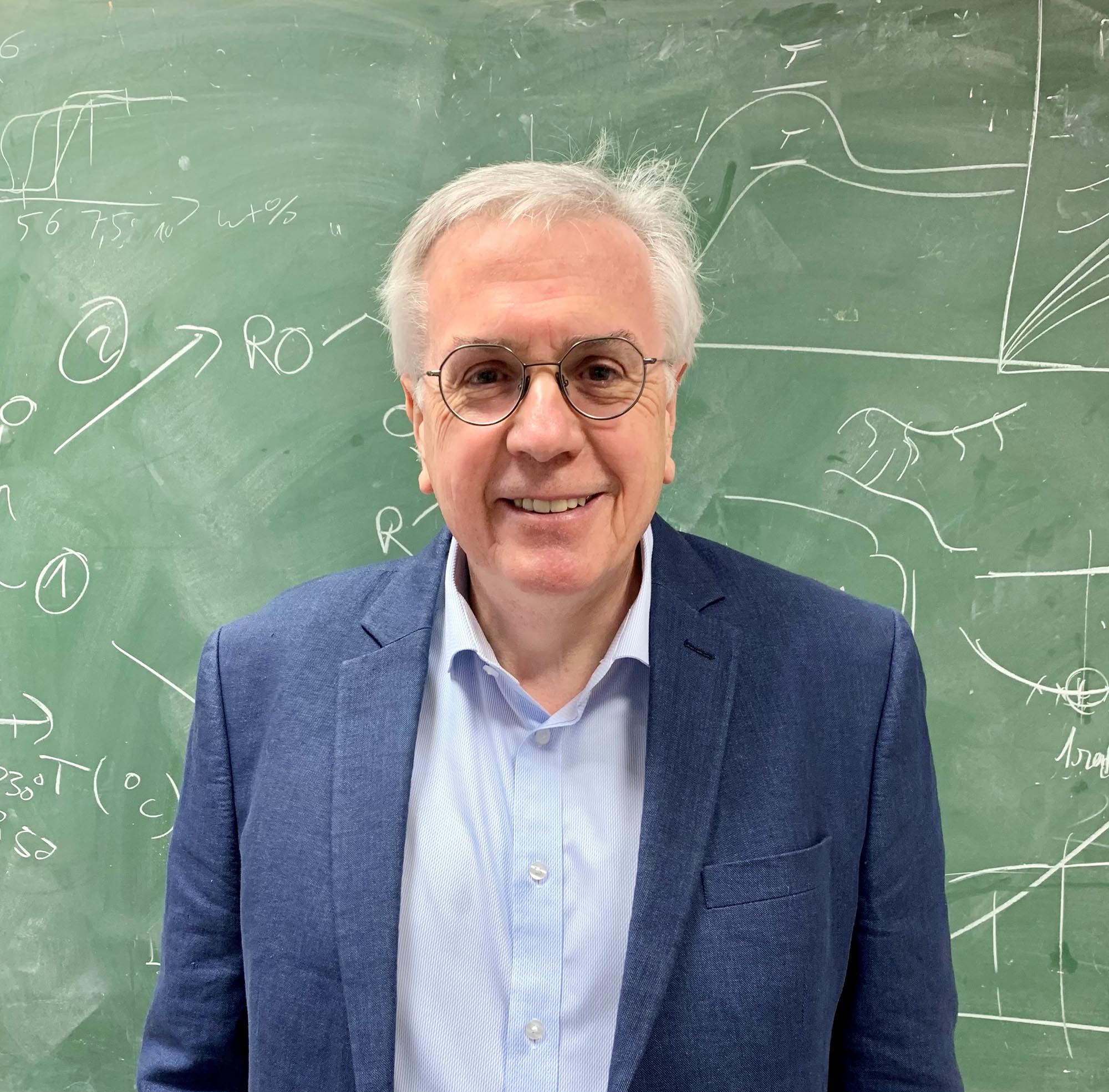
Award Citation: For developing a fundamental understanding of the rheology, wall‐slip, aging and flow of concentrated suspensions of soft particles.
Weissenberg Awardee 2019
The 2019 Weissenberg Award recipient is Jan Vermant from ETH Zurich, Switzerland.
Prof. Jan Vermant is one of Europe’s finest experimental rheologists and also a leading scientist in colloid and interfacial dynamics. His work includes important findings on dispersion rheology and is recognized for his innovative and foundational contributions to interfacial rheology. He has profoundly influenced this latter topic through the development of new experimental methods, morphological control of model complex interfaces, and theoretical analysis of non-Newtonian interfacial flows. His outstanding accomplishments were recognized by the leadership of the ETH Zurich and he recently moved to that institution to hold the first chair in soft materials. He has also received the 2009 Journal of Rheology Publication Award of the Society of Rheology, the 2016 Lars Onsager Medal and Professorship (NTNU, Norway) and is a Fellow of the Society of Rheology (USA). Jan Vermant has established a world-class research program in experimental rheology with dual focus on instrumental development and advances in colloidal and interfacial dynamics. His work includes seminal discoveries that have brought understanding and fundamental insight to problems at the forefront of rheology and represents the qualities one seeks in a Weissenberg medalist.
Further details can be found at http://www.softmat.mat.ethz.ch
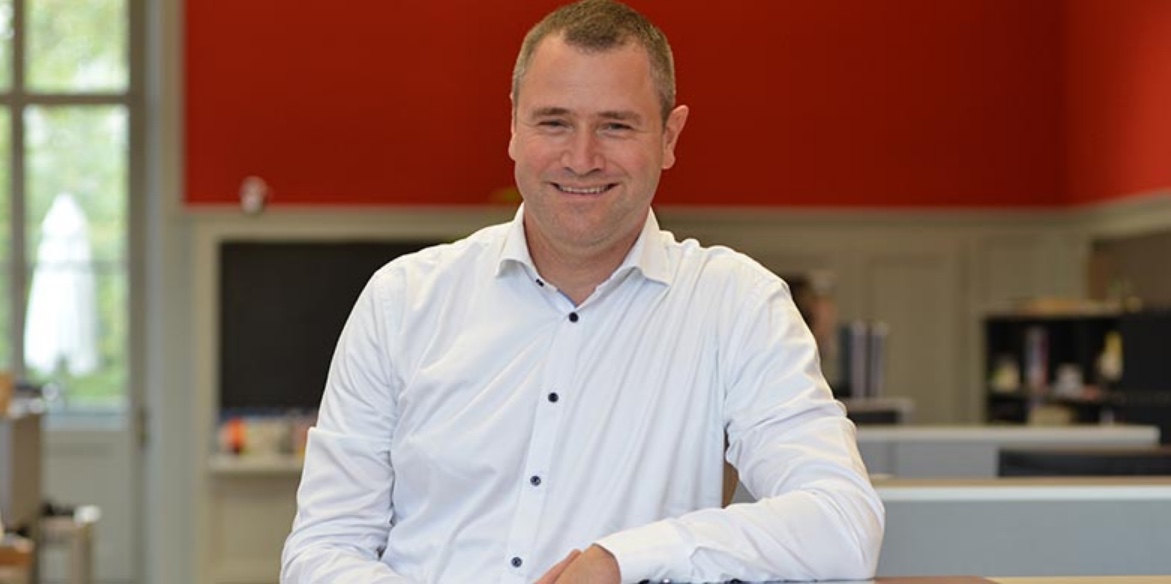
Weissenberg Awardee 2017
The 2017 Weissenberg Award recipient is Philippe Coussot from Université Paris-Est, Laboratoire Navier (Ecole des Ponts, IFSTTAR, CNRS), France. Coussot has contributed to both fundamental and engineering aspects of rheology, in particular thixotropy and yielding of dense suspensions, pastes and other complex out-of-equilibrium materials. He has made ground-breaking discoveries (such as viscosity bifurcation), developed cutting-edge experimental protocols (such as rheo-NMR) and contributed massively to the conceptual understanding of the rheology of (simple and thixotropic) yield stress fluids and their flow in complex geometries. With the same rigor, he has applied NMR to advance the field drying and porous media flow. His pioneering work has shaped the field and pushed toward unprecedented progress. Philippe is an active member of the rheology community, strongly engaged and dedicated mentor. Further details can be found in http://philippecoussot.com/phi...

Weissenberg Awardee 2015
Dimitris Vlassopoulos studied Chemical Engineering at the National Technical University of Athens in 1983. After a short industrial experience in Greece, he moved to the USA and obtained his PhD degree in Chemical Engineering from Princeton University in 1990, working on viscoelastic fluid mechanics with Professor W. Schowalter. His first appointment was at the Paulsboro Research Laboratory of Mobil Research & Development Corporation. He then made a bold move to an uncertain position in FORTH in Heraklion at the end of 1992 and build up a high quality research group in the field of rheology and dynamics of polymers and colloids. Dimitris joined the University of Crete in 2002. He has held visiting Professorships at the University of Delaware (USA), the University of California, Santa Barbara (USA), the ETH in Zürich, and held the Michelin Chair at the ESPCI (France).
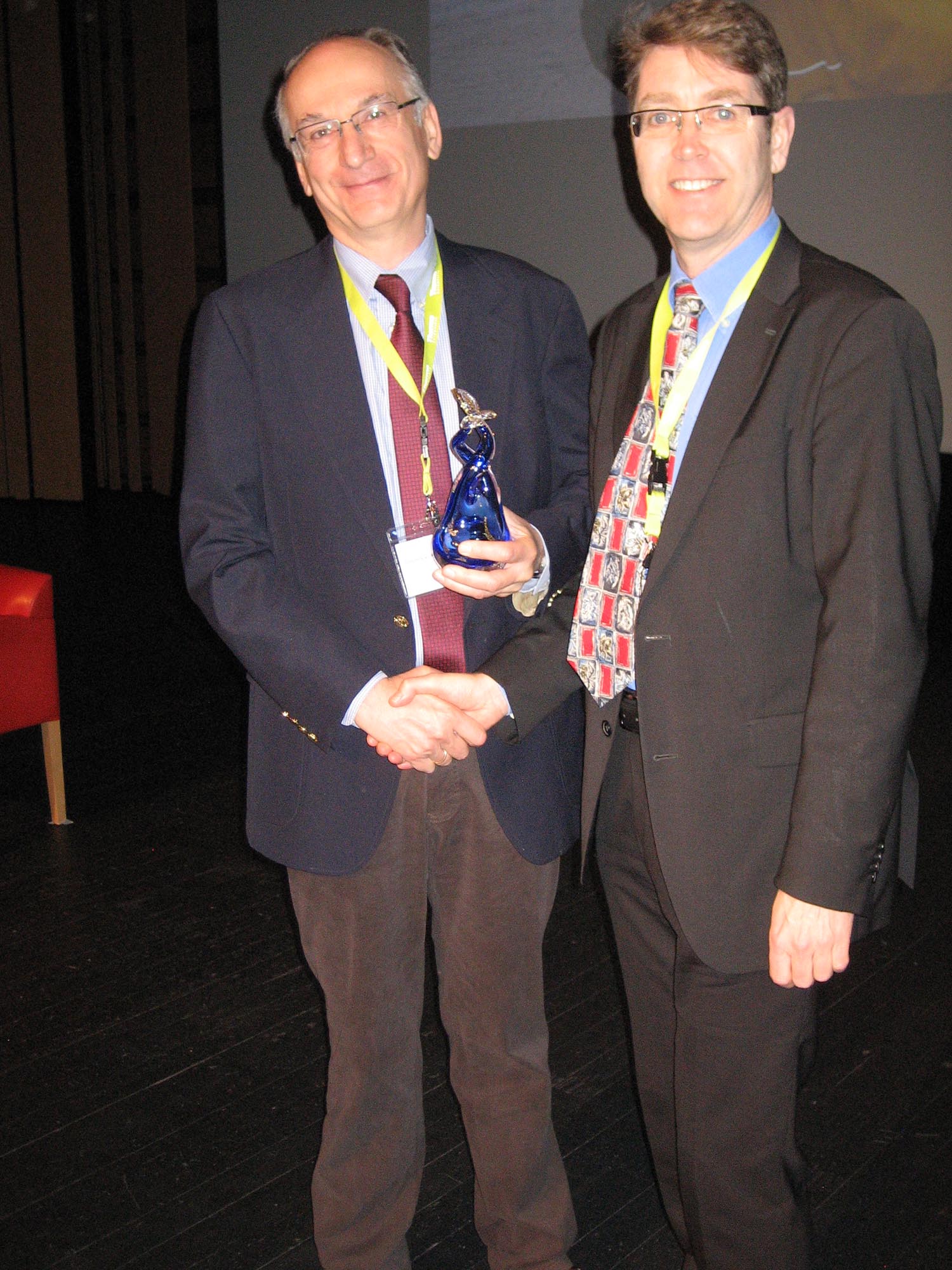
Weissenberg Awardee 2013
Michael Cates studied physics at Cambridge University. After graduating with First Class Honors (1982), he pursued and completed his PhD studies (1985) at Cavendish Laboratory working with Prof. Sir Sam Edwards. After two highly successful postdoctoral stays in US (Exxon and ITP), he returned to Cambridge in 1988 as Trinity College Teaching Fellow and University Lecturer. In 1995 he was appointed to Chair of Natural Philosophy at the School of Physics, University of Edinburgh. Since 2007 he holds a Royal Society Professorship. His key role in making the Edinburgh group a world-leading center in soft matter physics and rheology is well-known. His ever lasting impact on rheology is well-known to and appreciated by our community. There is no rheologist who does not know the name Cates and has not come across at least some of his papers. His enclosed CV speaks for itself. The numbers are unmatched: Over 280 papers, 14000 citations, an impressive h index of 65, over 120 invited talks, several named lectures, an array of students and postdocs pursuing successful careers. In addition, he is very frequent lecturer (and a very excellent one) in various short courses. He is a very active member of our community as well as the broader soft matter community, serving or having served in several organizations, committees and journals and having organized/co-organized meetings. His pioneering work has already been recognized, most recently by the Institute of Physics Dirac Medal and Prize, 2009) the Society of Rheology (best paper award for Journal of Rheology, 2010), the British Society of Rheology (Gold Medal, 2009) and the Royal Society (FRS, 2007).
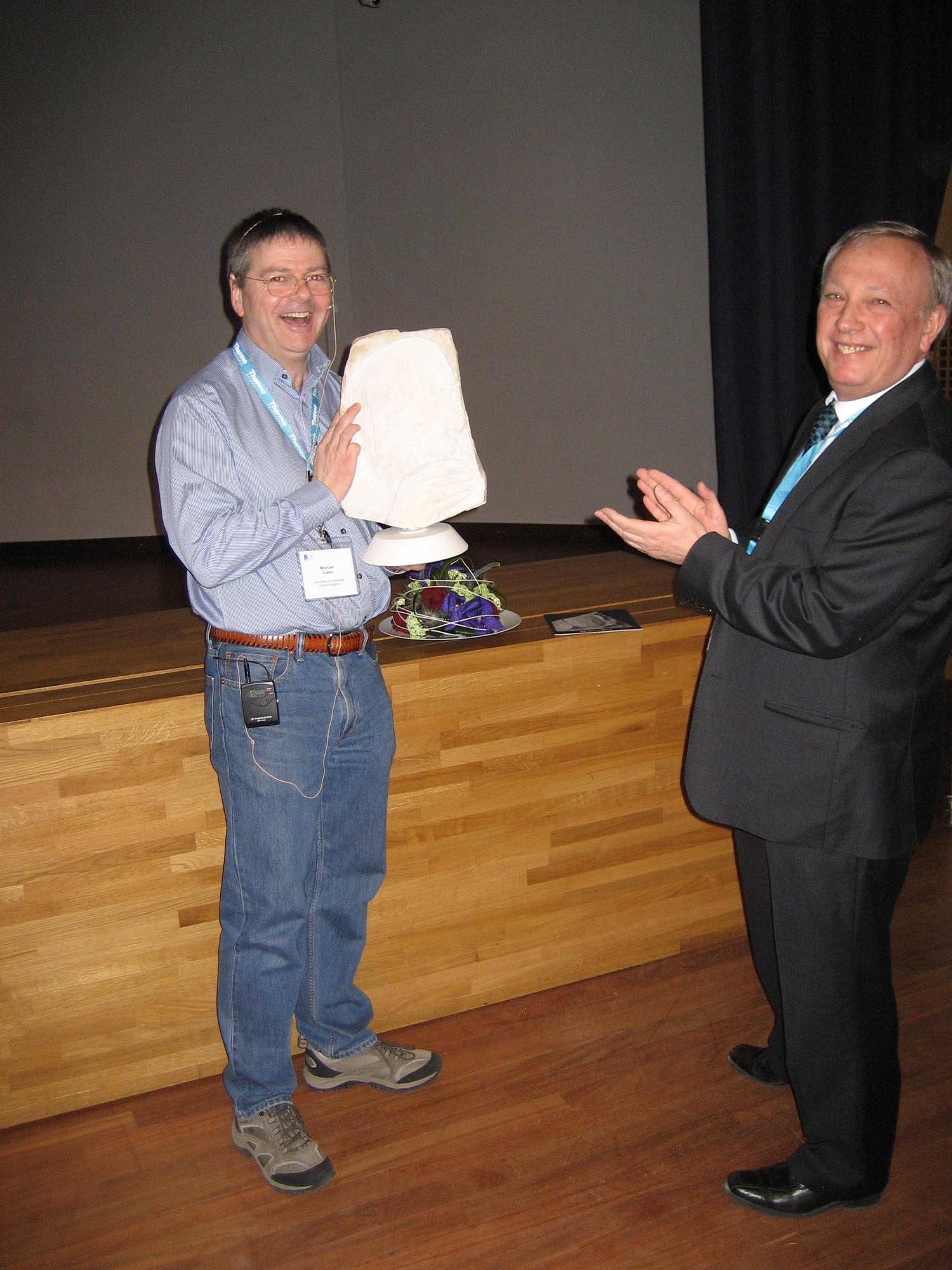
Weissenberg Awardee 2011
Manfred H. Wagner was born in Stuttgart, Germany, in 1948. After studies of Physics and Physical Chemistry at Stuttgart University and Oregon State University, Corvallis, USA, he graduated as a PhD in Chemical Engineering at the Institute for Polymer Processing of Stuttgart University in 1976. After 2 years as post-doc in Polymer Physics with Prof. J. Meissner at ETH Zürich, and after 9 years of industrial experience in the carbon and graphite field, he returned to Stuttgart University in 1988 as Professor for Fluid Dynamics and Rheology. In 1998/99, he was Dean of the Faculty of Chemical Engineering and Engineering Cybernetics of Stuttgart University. Since 1999, he is Professor for Polymer Engineering and Polymer Physics at Berlin Institute of Technology (TU Berlin). Manfred was President of the German Society of Rheology (DRG) from 1991 to 2003. Together with the then President of the British Society of Rheology, Ralph Oliver, he initiated the formation of the European Society of Rheology (ESR), for which he served as Secretary (1996 to 2005) and President (2005 to 2009). Since 2004, he is Secretary of the International Committee on Rheology (ICR). He is a member of the Editorial Boards of several key rheology journals. For more than three decades, Manfred has been a prominent figure in polymer rheology. His research has always been characterized by a quest to identify by thorough analysis, the underlying fundamentals in diverse experimental evidence, and to seek a fundamental understanding of phenomena. He has published to date over 200 papers on rheology and processing of polymers as well as solid state physics, and carbon and graphite technology. During his PhD studies on film blowing, he became intrigued by the elongational strain hardening behavior of LDPE as first investigated by Meissner, and later by Laun and Muenstedt. In a series of papers from 1976 to 1980, he demonstrated that the complex nonlinear elongational and shear flow behavior of polymer melts can be reduced to two material functions, the linear-viscoelastic relaxation modulus and a nonlinear strain function. For the latter, he coined the term “damping function”, which became an important technical term in rheology, as well as the “Wagner model” associated with it. For their achievements in elongational rheology, Meissner, Laun, Münstedt and Wagner received the Annual Award of the British Society of Rheology in 1981. Manfred was also one of the first to consider the relevance of irreversible destruction of entanglement connectivity by deformation (1979), a subject he and his co-workers returned to later with detailed studies on step-strain experiments (1998). By studying universal rheological aspects of polymer melts and rubbers, he gave a fundamental explanation of the origin of the C2 term in rubber elasticity (1994). Applying his insight in rheology to polymer processing led to the concept of Rheotens mastercurves (1998). For his outstanding contributions to the science and technology of polymers, the Institute of Materials, London, awarded him the Swinburne Award in 2002. His latest contribution to constitutive modeling of polymer melts, the Molecular Stress Function (MSF) theory developed since 2001, modifies the tube model of Doi and Edwards by considering the tube diameter to change with deformation. This assumption overcomes the most important disadvantage of the DE theory and produces excellent predictions consistent with the general tube model picture. For monodisperse linear polymers, by incorporating the interchain tube pressure concept of Marrucci and Ianniruberto (2004), the MSF model is in quantitative agreement with the experimental data presented by Ole Hassager and his group since 2003, and recently Manfred was able to proof that the tube diameter relaxation time is equal to three times the Rouse stretch relaxation time of the polymer chain (2009).
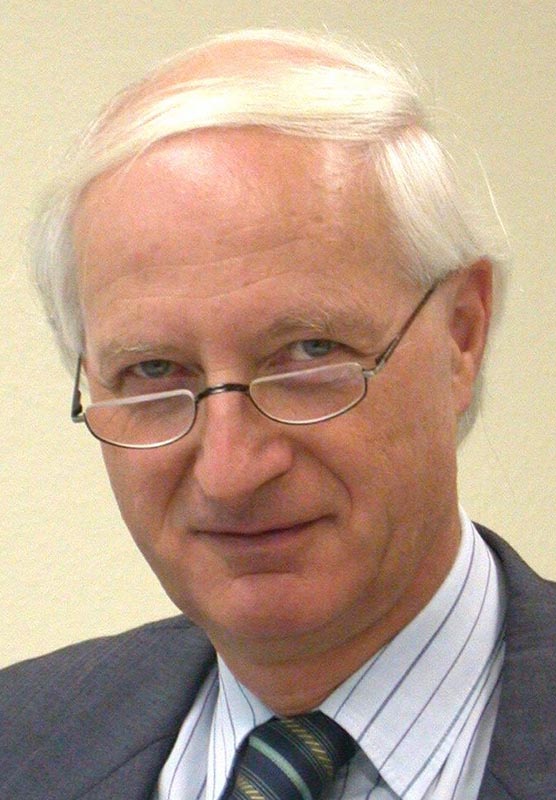
The outstanding point associated with Manfred's work is his ability to reduce complex experimental evidence to the relative simplicity of the underlying physical models and their respective mathematical formulations. He has made important advances in the field of rheology and beyond, relating fundamental aspects to application. His outstanding, long-term achievements have left their clear mark in the field of rheology. Manfred Wagner is a very approachable, very modest and friendly person, a man of warmth, charm and character. He is a dedicated teacher and a true scholar.
Weissenberg Award Catalog 2011
Weissenberg Awardee 2009
Ole Hassager, born in 1947, studied Chemical Engineering in his home country, Denmark. He then moved to the University of Wisconsin-Madison, USA, where he completed his PhD under the guidance of Professor R.B. Bird in 1973, and then stayed for another 3 years as a Research Fellow at the Rheology Research Center. He returned to Denmark and to the Technical University of Denmark (DTU), where he is now Professor of Chemical Engineering. Currently he is Director of the Graduate School of Polymer Science, a member of the Editorial Boards of JNNFM and Rheol. Acta and a member of the Danish National Research Council. For more than 30 years, Ole Hassager has been one of the prominent figures in rheology and non-Newtonian fluid mechanics. His research has always been characterized by a thorough approach, a careful analysis which seeks a fundamental understanding of phenomena, and a tackling of challenging problems. His early work with R.B. Bird in Wisconsin on kinetic theory and constitutive modeling of dilute polymer solutions led eventually to the co-authorship of the two classic volumes on the dynamics of polymeric liquids [1977, second edition 1987] and established him in the community. Ole has played a key role in viscoelastic flow calculations with many pioneering contributions (Lagrangian finite element methods [1983, 1995], moving FEM [1989] corner flows [1989], transient flows [1993, 1994], instabilities [1991], bubbles and drops [1989]). He and his co-workers contributed significantly to the development and application of numerical methodologies for other transport problems [1993, 1998]). The rheological problems he has addressed cover the whole range of polymeric fluids, from polymer solutions to viscoelastic melts to viscoplastic fluids. The tools he used and developed are also wide-ranging, from theory and simulations to experiments. Of particular note is the work of the last decade on extensional rheology of polymer melts. He and his group developed a transient filament stretching rheometer that represents the state-of-the-art in the field. In a series of landmark papers [2003-2008], they presented unique data on model polymers which revolutionized the field. These data [2003] energized the “entanglement” community and motivated the development of elegant concepts such as the interchain tube pressure in entangled linear chains [Marrucci and Ianniruberto, 2004]. The field is now one of the most active ones of polymer rheology with many interesting debates, and Ole is again leading with new experiments on stress relaxation after uniaxial extension [2008]. Ole Hassager’s work has had and continues to have significant technological implications. His creativity has no limits. He has made tremendous advances in a vast range of rheological problems. His work is deep and sound and highlights the connection between macroscopic properties and fundamental material parameters. It reflects rheology at its best. Ole Hassager is a very approachable, very modest and friendly person, and a dedicated teacher and mentor. He is a true scholar, and a rheology pioneer.
Weissenberg Awardee 2007
Tom McLeish

Weissenberg Awardee 2005
Roland Keunings

Weissenberg Awardee 2002
Ken Walters
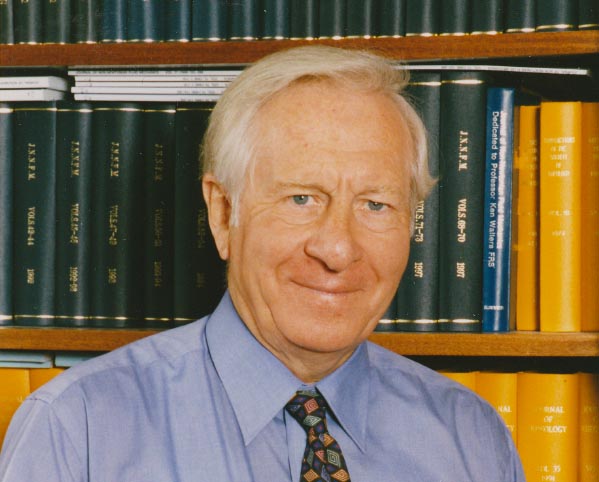
Weissenberg Awardee 2000
Hans Martin Laun
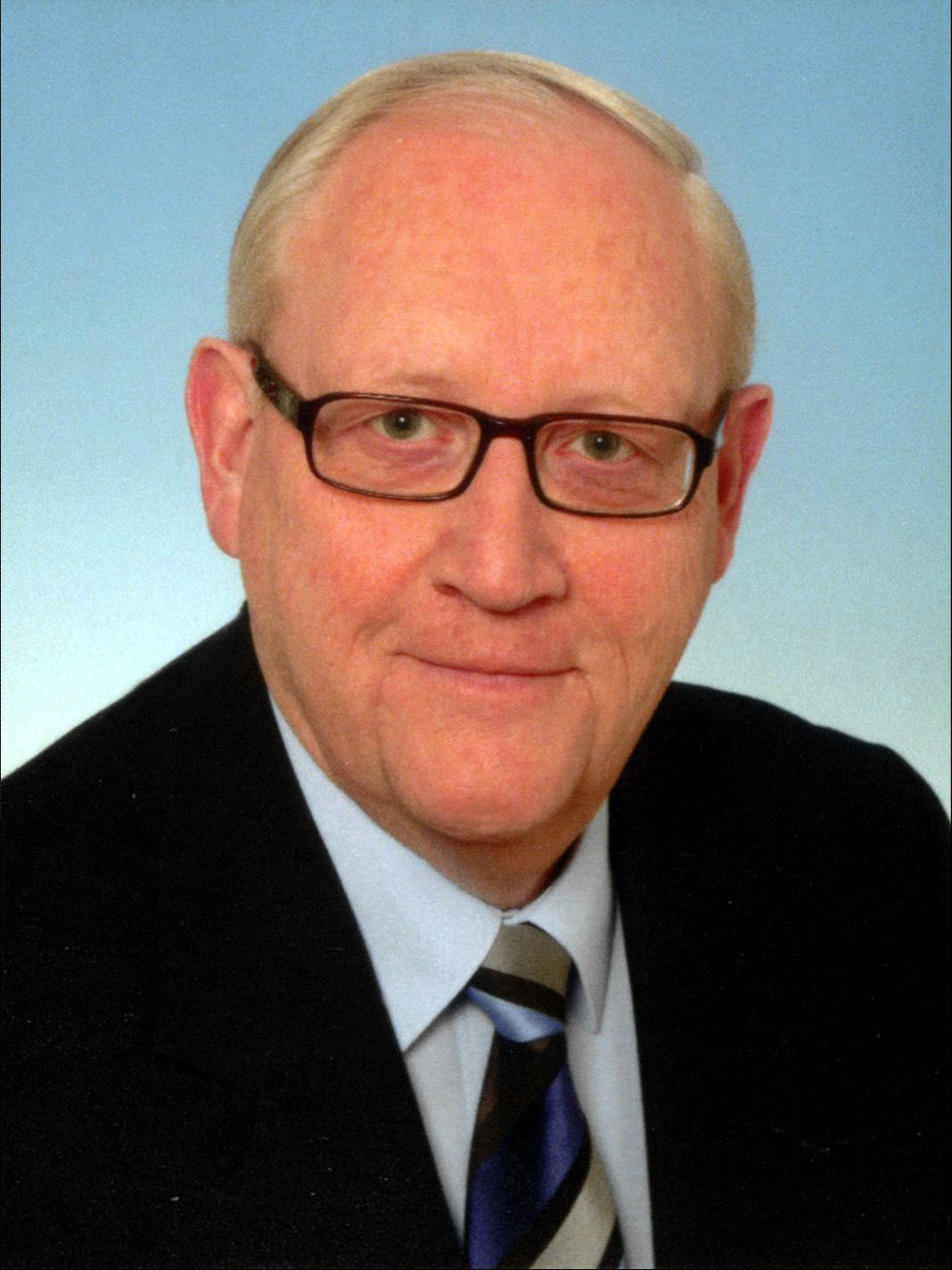
Weissenberg Awardee 1998
Giuseppe Marrucci
